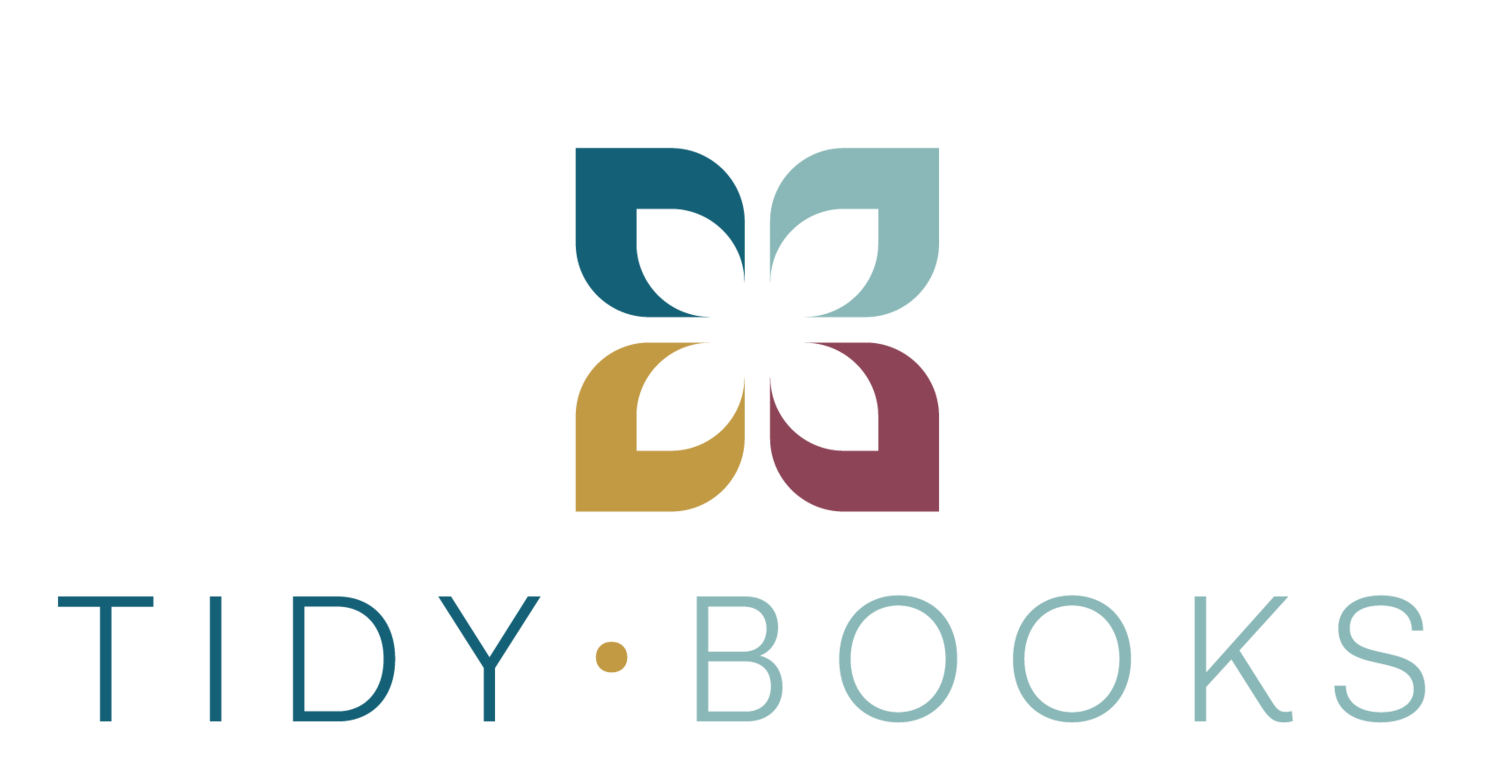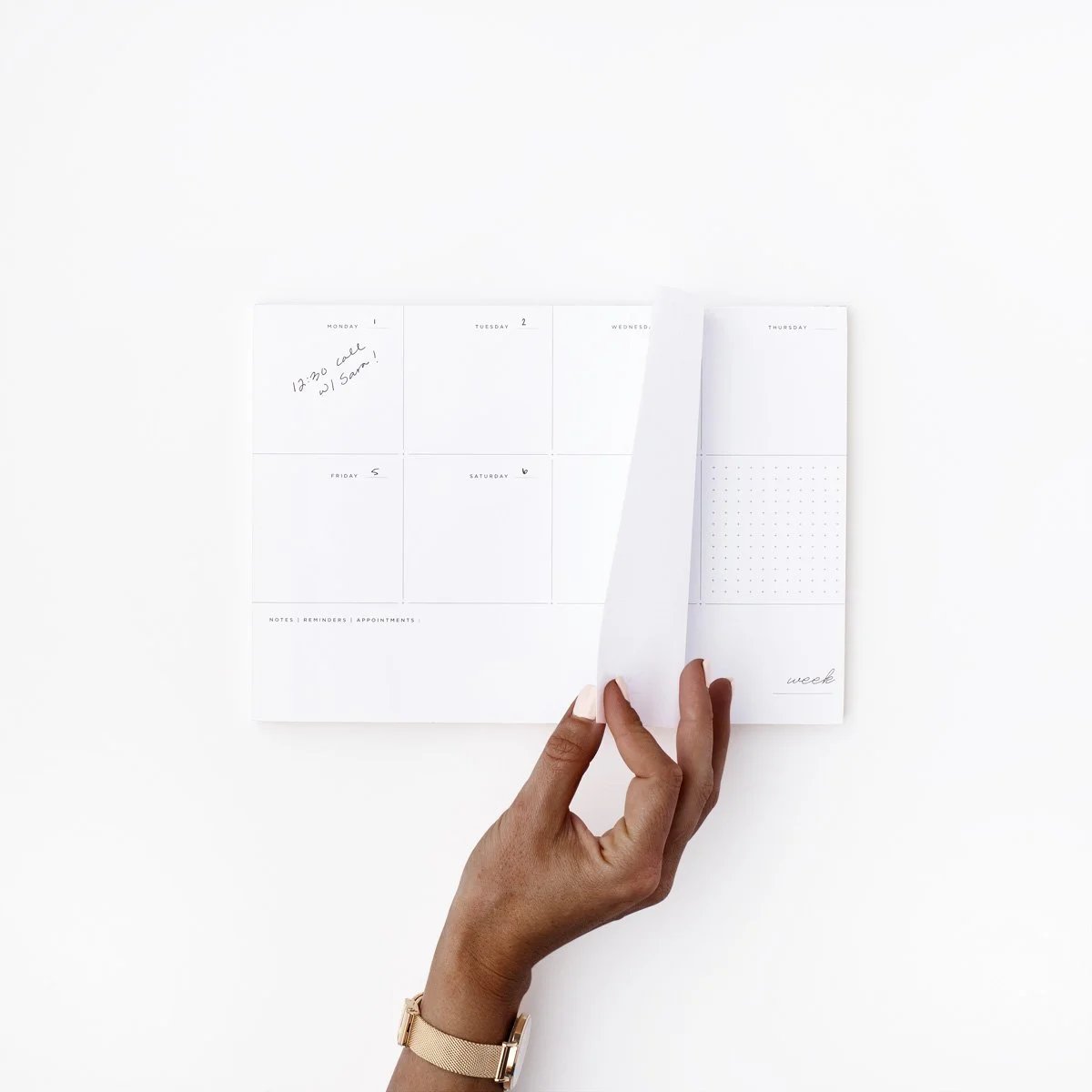Our Photographer's Guide to Bookkeeping answers the most common questions we get from photographers in one go-to resource. Whether you are new or just starting out, learn best practices, essential to-do's and get our favorite resources for financial success in your photography business.
Read moreWhich is better: Spreadsheet or Software?
There is so much more to running a photography business than imagery and artistic vision. Understanding the financial side of your business is fundamental. For photographers, this includes pricing, contracts, and bookkeeping. Keeping track of your expenses, income, and taxes will enable you to run a sustainable photography business. So which system is right for you--spreadsheet tracker or CRM? Find out which option would best fit your business to track expenses.
Read moreAre you Tired of the Clutter in your Photography Finances?
Two years ago, we hired a professional organizer for two days while we were on vacation. Prior to starting the work, she walked through our home and helped us identify the top 3 most stressful points that would benefit from a makeover. When we came home from vacation, our pantry, master bedroom closet and garage had been transformed. I can't even describe the level of sanity that just having those 3 areas organized brought to all of our lives.
If your business finances are causing as much stress as our home clutter, I am here to tell you that with a few simple systems and tweaks, you will feel a huge sense of relief walking into the new year.
First, consider hiring a professional to get you organized
I often talk with photographers who feel the need to apologize about their books before I take a look. I assure them that we have "seen it all" and there are very few messes that can scare us away. In fact, if it truly is a bigger mess than we care to untangle, we will start a brand new account and re-create the past instead of trying to clean up the mess.
I have talked to many seasoned photographers who have had an incredible career, only to feel defeated in their finances and overwhelmed by the state of their books after years of a successful career. This is why we are passionate about supporting photographers in this area that is often overlooked or pushed to the backburner.
My advice: hire a trusted, experienced bookkeeper for your photography books. Even if their role is temporary, allowing them to bring organization and systems into your bookkeeping will bring a huge sense of relief. Just like the professional home organizer brought untold calmness to my life, so will well-organized, up-to-date books by a professional.
Second, maintain a sustainable system
We all know how this works: Even though our garage was beautifully organized two years ago, it can quickly look like a tornado swept through it after a busy summer. We have to work on keeping it organized on a daily and weekly basis.
In the same way, once you have a clean system for your bookkeeping, keeping up with your accounting is the hard part.
Ideally, a bookkeeper will keep you accountable to keeping your books up to date on a monthly basis. They will help you to maintain good habits, like keeping business and personal separate, organizing your receipts, and producing a monthly income statement to review.
If you are doing your books yourself, you will want to come up with your own monthly workflow. I recommend making sure your books are up to date by around the 10th of each month. Set aside a morning every other week to catch up on your Quickbooks or make sure your invoicing is current.
Third, look proactively at your finances
Once you have the foundation of tidy and organized books, make sure you are using your numbers to grow your business. Look at your profit and loss each month to see how your business is really doing.
Look ahead and make a plan for the months that may be a little tight. Challenge yourself to a higher profit margin this year than last. It's amazing the freedom that can come when you remove the clutter and confusion in your finances.
Feeling like you need some help from a professional? Tanya and the Tidy Books team specialize in helping photographers get organized and gain peace of mind in their business finances. Schedule a free consultation with Tanya to see if we might be a good fit for your business.
3 Steps to Organize Your Photography Bookkeeping This Year
I would venture to say that most photographers don't start out with formal plans. Most of us are flying by the seat of our pants, right? Often the habits we form at the start of our business have carried over as we grow - for better or worse.
But at some point, organization needs to be a top priority. Here are 3 steps in getting your finances in tip-top shape.
Step 1: Separate business and personal
It is very common for us to see photographers mixing business and personal expenses. This can be an accounting nightmare when it comes to making sure your books are accurate for taxes.
It can be a bit of a process to unlearn this habit, but the first step is to open a business bank account, if you haven't already. If you are using Venmo and/or Paypal in your business, open business accounts for those as well. Then start the process of shifting all of your expenses to your business accounts.
If you are using a credit card for your business expenses, make it a business credit card to keep everything clean and simple.
For the times that you swipe your personal card for business expenses or vice versa, just make sure those deductions are getting recorded properly on your books.
Step 2: Use a bookkeeping system
There are so many options for bookkeeping in your photography business. Here are our top three recommendations.
Quickbooks Online: For the photographer who is ramping up, going full time or scaling their business, we recommend going with Quickbooks Online as soon as you can, in order to establish good habits from the beginning. If you are building a serious photography business this is our top recommendation. Save yourself the learning curve and consult a bookkeeping professional to help with set up.
Quickbooks Self Employed: same company, different product. QBSE is intended for contractors or freelancers (think side gigs), where there is low volume and you need to be able to separate business and personal. If photography is your hobby and you are not dealing with things like sales tax, this might be a good solution. Since it is not as comprehensive as Quickbooks, this can be a great product to start out with, and once you start to feel limited, move to Quickbooks Online.
Easy Expense Tracker for Google Sheets: A spreadsheet can be a great way to track your income and expenses, especially if you are just starting out, or you plan to stay small or hobby size. We've created a spreadsheet just for photographers called the Easy Expense Tracker for Photographers. If you feel that Quickbooks is overkill for your business right now, check it out here.
Still unsure which system is best for you? Learn more about software versus spreadsheet here.
Step 3: Establish a monthly workflow
Bookkeeping is often something that gets put on the backburner each month, until suddenly it is the end of the year and panic sets in for tax time. This year, why not try blocking off a day each month (at least) to catch up on your monthly bookkeeping.
Create a monthly checklist for yourself to make sure nothing is falling through the cracks. We've created a monthly checklist in our bookkeeping tip sheet.
4 Ways to End 2023 Stress-Free
Are you approaching the end of the year with some apprehension about your photography business finances? I've been there too, but I've learned some things that I want to share with you that will give you confidence as you wrap up 2023.
Make a plan for taxes. A good CPA is one of the best investments you can make! Look for someone who not only files your taxes but can proactively advise you on how to save money on taxes and make tax time a little less painful for the taxes you due owe, by spreading out your payments throughout the year. When you find a good CPA, typically they will find enough tax savings to cover their cost and even multiply their cost and put it back in your pocket.
Consider last minute deductions. When you make a business purchase, that reduces your taxable income…aka you pay less taxes! Now, this doesn't mean that you should throw caution to the wind, go on a B&H shopping spree and say, "It's fine! It's a deduction!" It does mean that if there are purchases you have already been considering, and it makes financial sense, December is a great time to spend that money. We have a list of common photography deductions here.
Wrap up your bookkeeping. You simply cannot win with money in your business if you are disorganized and constantly behind. By the end of December, your bookkeeping should be close to wrapped up. If you haven't been keeping up with it all year, now is the time to catch-up! Step on the scale and see what happened this year. The result might surprise you. We've done many bookkeeping catch-ups that leave our clients surprised at how well they actually did and how much they actually paid themselves.
Build up your emergency fund. If your last quarter is your most profitable, don't spend it all! Open a savings account, if you haven't already, and build up your business savings. 3 months worth of expenses is a great place to start. If your income is unpredictable and fluctuating, as with many photographers, this buffer will save you many sleepless nights on those low income months.
The end of the year doesn't have to be a time of dread when it comes to your finances. If you make a plan to get organized, plan for taxes, and put in some hard work, you will end the year in confidence.
Need some help wrapping up the year? Our team is ready to tackle your bookkeeping situation - book a call with Tanya to secure your year-end spot.
How to Figure Out Year-End Tax Deductions for Photographers
It was a sad day in August when I dropped my Macbook Air on the ground. It wasn't completely destroyed but it has been limping along ever since and has required daily doses of TLC. My frugal (cheap) side wanted to wait as long as I could to replace it, but after considering that 1) it was a smart budget decision, 2) it has been hindering my production and a frozen Zoom call almost cost me a client and 3) it would be a tax deduction for this year…I bought a shiny new Macbook Pro on Black Friday.
Why do I tell you this story? Because too often I talk with business owners (and I have been guilty as well) who make shot-in-the-dark, emotional purchases at the end of the year and don't realize the strategy behind year end purchases. Let's take a look at how to make smart, proactive decisions that lead to an amazing and profitable year-end.
Where to spend your money
Below is a list of common deductions for photographers to consider. This is not a comprehensive list, nor is it necessary to spend in ANY of these categories. But if you've been considering a purchase in any of these areas this year, consider doing it before December ends.
Education (think courses, programs, masterminds, even coaching)
Software - (CRMs, photo editing, organizing, client management, etc.)
Photo Gear (who doesn’t love a new lens?)
Computers, printers, office equipment
Home office improvements (ergodynamic chair? Your back will thank you)
Accounting services (our personal favorite - we want you can sleep at night!)
Client gifts ($25 per client is deductible)
How to be smart about spending your money
Consider these questions before your next purchase.
Is this financially responsible? I think in most businesses you there will be transition years where it's necessary to make some big investment purchases. These are long-term moves that will ultimately move your business forward. 2023 was that year for Tidy Books. We had several large investment expenses that coincided and pushed our profitability than we like. We had to say no to some other expenses that weren't absolutely necessary. So before you say yes to a purchase, consider: do I have margin in my budget for this expense or will it put a strain on my finances.
Will this benefit my business? I think photographers have a special place for shiny new objects, aka if I just purchase this new lens or that new course, I will have arrived. This is a myth - consider working with the knowledge or equipment you have until you have applied what you already know. When you start to feel limited, allow yourself to make some investments. Sometimes you have to go with your instincts and be okay with the risk of a purchase that you have a feeling will improve you business. Just do your research and consider the benefits of the purchase first.
Is this an expense I have been considering anyway? If the answer is yes, then it's typically a tax advantage to go ahead and purchase it this year and get the tax deduction. It's a good idea to check with your accountant first. Now, if a great deal pops up, this is not to say you cannot make an unplanned purchase. Just run it by the above questions before purchasing.
Why spend your money
In business 101 you learn that a tax deduction reduces your taxable business income. I will give you a very simplified example. Let's say I am a sole proprietor and my bottom line (taxable income) was $50,000. If I buy $5,000 worth of computers and equipment and spend $1,000 on a new course, I will now be taxed only on the $44,000. This is the IRS' way of encouraging spending for small businesses. So don't be afraid to spend your money - but please be smart about it.
One year I impulsively invested into an expensive program that ended up not delivering on its promise. It was a disappointment, but it wasn’t a strain financially. I had a margin built up that allowed for the purchase, I took a risk that didn't work out, and in the end it was a tax deduction anyway.
I never recommend making purchases based on whether it will be a tax deduction. But if it's a choice of when not if, I will typically make the purchase in the current year. The key is to make smart, proactive decisions and you will be in great shape!
Need some help wrapping up the year financially? Our team is ready to tackle your bookkeeping situation - book a call with Tanya to secure your year-end spot.
How I Went to 6 Figures with 6 Kids
I never intended to have a six-figure business. It started out as a survival story. I was looking for a way to contribute to our family income while my husband stepped out of the workforce and became a full time seminary student.
Our goal was to live on my income by the end of his 4 year post-education experience. After we reached that goal (which was no small thing), we pivoted from using the business as survival to dreaming about what could be. My husband even joined the team and it became a creative venture together. Looking back, I am amazed at where it all started.
What's your origin entrepreneur story? Wherever you are on your journey, I am happy that our paths have intersected. One of my favorite things about what I do is having a front row seat to everything that goes into building, growing or running a business. Call me sentimental, but will you bear with me as I reflect on 3 lessons learned.
#1 This too shall pass - develop a resilience mentality
I think I have some credibility when I say that starting a business is like having a baby. In fact, I started my business right before having my 6th (yes 6th) child. And it felt like a metaphorical baby. It was fragile, unpredictable and all-consuming. I had days full of tears, days I wanted to give up, high highs and low lows. There were days I wanted to give up and wasn't sure if my business would continue. Have you been there?
I quickly realized the roller coaster nature of owning your own business. And I started to see the patterns and develop resilience. When the end of a day had me questioning WHY I ever started this, I closed my computer, took a walk with my kids, and waited for the crisis to pass. And when the day ended on a mountain top with the best news ever, I would soak up the moment and give thanks, knowing this is a gift.
#2 Running a business can be lonely - find your people
It took a village to grow my business. I remember many days when a friend would check in on me in the middle of big project. She would remind me that I was making a long term investment - hard work now will lead to big returns later. Or another friend who took my kids for the day as I was approaching a big deadline. Or my parents who cheered on every little success.
Always, my husband was by my side, cheering me on and coaching me. At one point I met weekly with a business coach who propelled my business forward even during a pandemic. Who are your people? The ones who can handle your brainstorms, rants and raves? Who actually have no idea what you're talking about but listen to your endless processing and planning? This too is a gift.
#3 No such thing as perfect - embrace the chaos
How many weeks did I make big plans for my business, only to wake up to a feverish child or an unexpected crisis? I remember in the middle of one of those weeks when my business coach encouraged me to stop and let go of my expectations. I was focusing on what was more important to me. My business could wait. Growth and progress can wait. I have learned to embrace the chaos of life and find joy in unexpected plans.
It's no longer just me at Tidy Books and we are on our way to 7 figures. I am beyond grateful for the journey. Follow along on Instagram.
From the Archives: Meet Our Very First Client
This month Tidy Books is celebrating a huge milestone: We hit (and passed) 100 monthly clients in 2023! We searched our archives and want to highlight our VERY FIRST Tidy Books client: Brittany Wolfe Baldwin.
Brittany is an award-winning senior photographer and owner of B. Photography. She is a friend, a sweet soul, and I will never forget her willingness to partner with us as our very first client. Check out more of her amazing work on the Gram!
Thank you for helping us get to 100 monthly clients in 2023! We love our clients and can’t wait to meet the next 100.
Want to be our next client? We only have a few spots left for 2023 catch-ups. Grab your onboarding spot by scheduling a consultation below!
3 Reasons a Spreadsheet Might Work for You Instead of Quickbooks
Have you been told that you need Quickbooks for your business, but you’re not so sure if your side hustle or hobby warrants it? Maybe you've tried Quickbooks and it brought out the worst in you. Or maybe the monthly expense turned you away.
At the risk of undermining the very basis of my business, I’m here to tell you why you actually might NOT need Quickbooks and why a spreadsheet might be just what you need right now. Quickbooks is not necessary for everyone, and not everyone is ready for Quickbooks. I want to help you determine what's right for your business.
You Have to Start Somewhere
When I first started my business, I wanted to do everything perfectly. I researched endlessly to find the perfect gear, software, vendors and courses. But the reality is that my business was (and is) constantly evolving. Yes, I stumbled across the perfect solution in a few cases, but for the most part, my processes, mentors, and tech stack are completely different than they were when I first started.
What is my point? It's okay if you start out with one way of doing your bookkeeping and make a switch later. If you are just starting out, it may not be worth the time investment of learning Quickbooks Online. A spreadsheet is a great starting point. My husband and I have started 4 businesses and each time we started with a spreadsheet of some sort.
Spreadsheets are Perfect for a Hobby or Side Hustle
One of the first questions I ask when someone wants to know my recommendation for bookkeeping is, "what's your goal?" Is your photography business a hobby or side hustle? Do you plan to keep it that way in the near future? Setting up a simple spreadsheet might be just the thing for you. If a spreadsheet gets you to the tax finish line, go with it. You can always move to something like Quickbooks if your plans change down the road.
Time is on Your Side (If You Have it)
In my early days of entrepreneurship, I had time to devote to researching and developing systems. Not so much the case a few years into the business. If you are in a spot where you have more time than money, you may have time to keep a spreadsheet updated with manual data entry. It may even help you stay in touch with your numbers in a different way than software does. Chances are that as you grow, time will become a commodity, and you won't be able to afford NOT to use Quickbooks and even hire a bookkeeper to grow with you.
So there you have it. Though I would have loved to talk you into using Quickbooks or hiring a bookkeeper (like Tidy Books), your business might not be at that spot yet. If this is you, we have created a tool just for you with our Easy Expense Tracker in Google Sheets. Click below to see if the Easy Expense Tracker could be right for you.
Get our Easy Expense Tracker for Photographers
After years of talking with photographers who weren't quite ready to hire a bookkeeper, we have developed a product just for YOU. Sometimes Quickbooks is overkill and a spreadsheet is all you need to track your finances.
Introducing: the Easy Expense Tracker! This Google Sheet helps you keep track of your business income, expenses and profit. It's perfect for getting everything together for taxes but also lets you see what's going on in your business at a glance.
We've even included recommended amounts to set aside for taxes, savings and your paycheck.
The expense tracker is ideal for:
Freelancers
Hobby Photographers
Side Hustle photographers
Photographers just starting out
Very low volume photographers
Click below to see inside our Easy Expense Tracker.

















